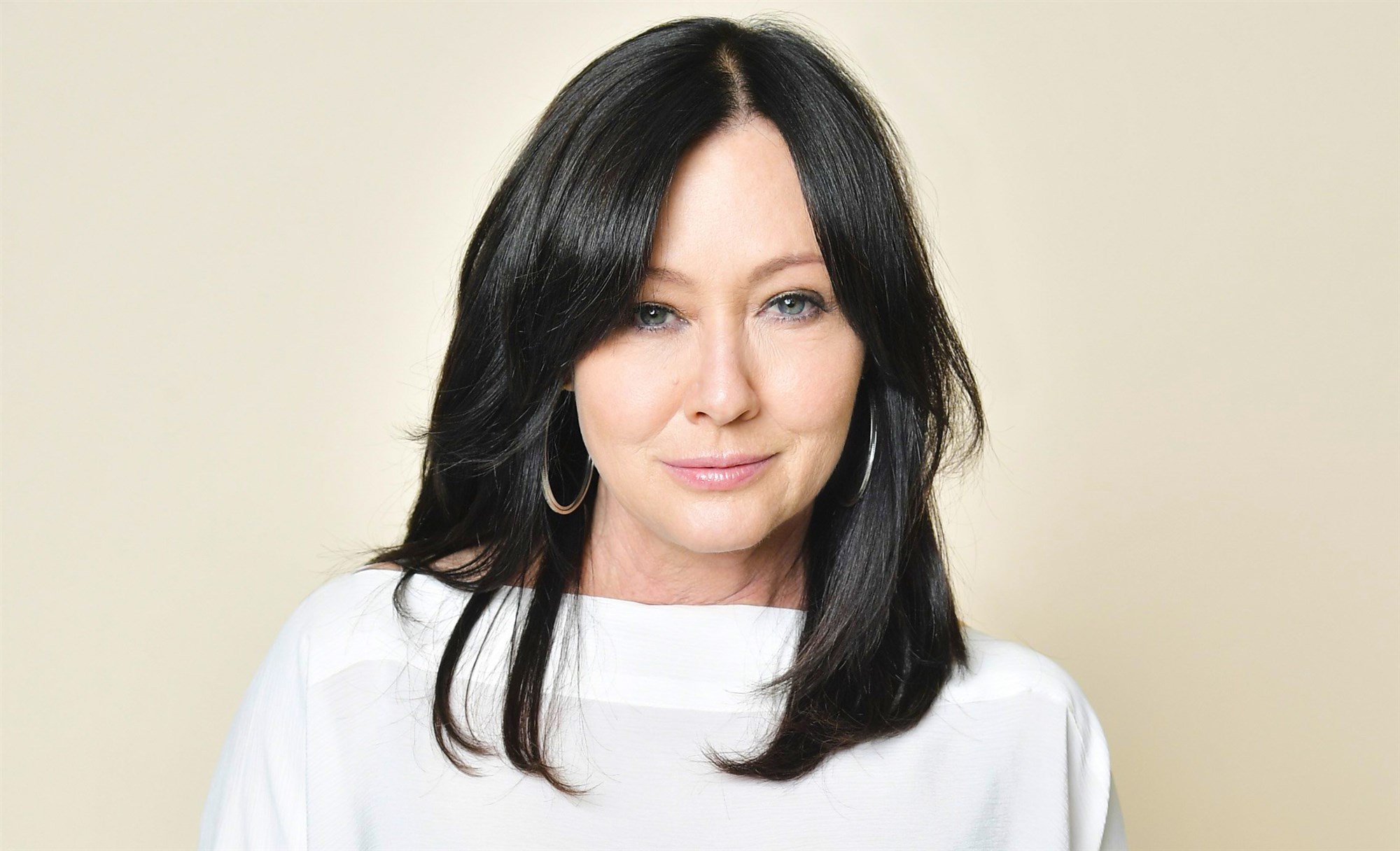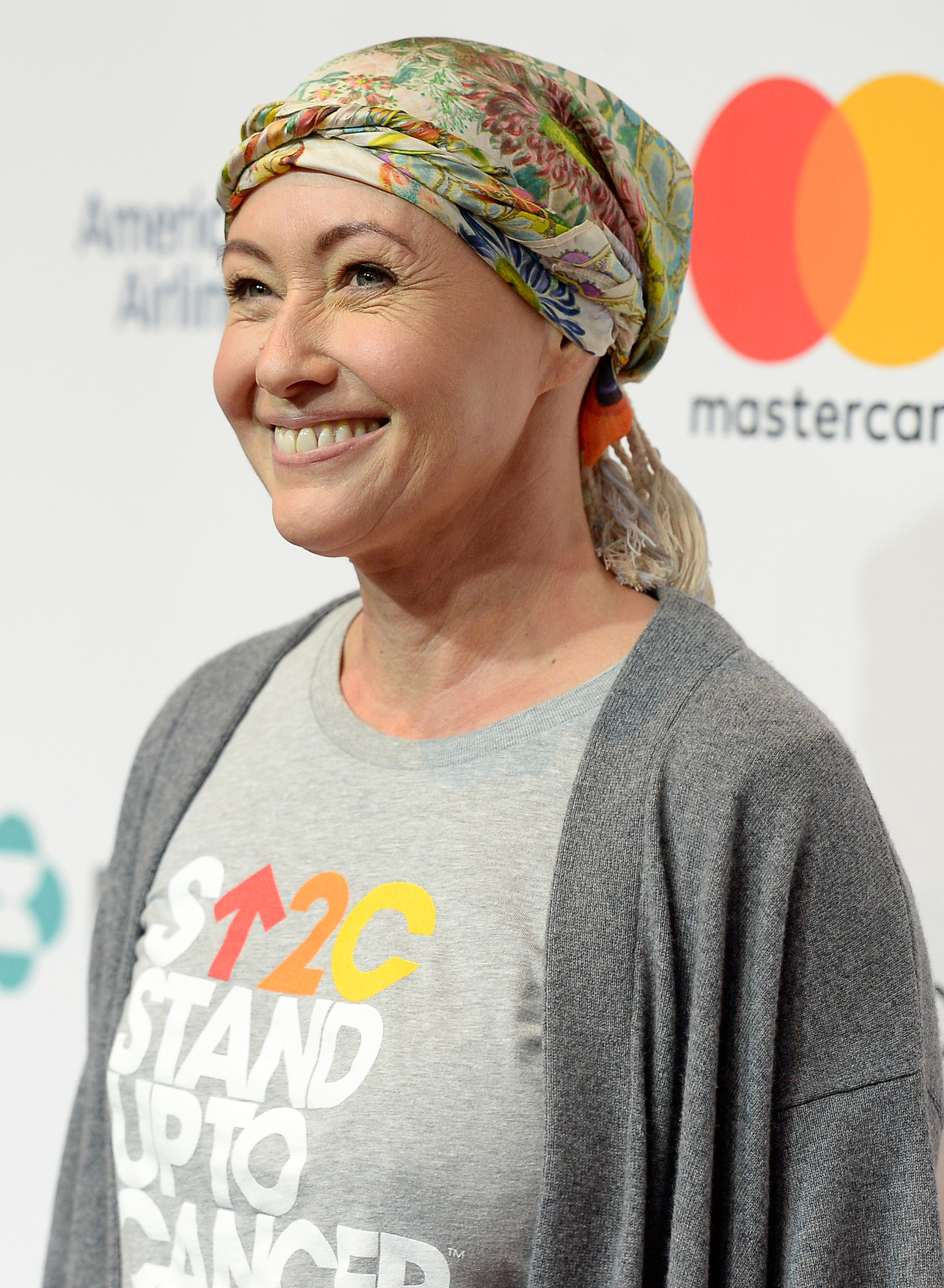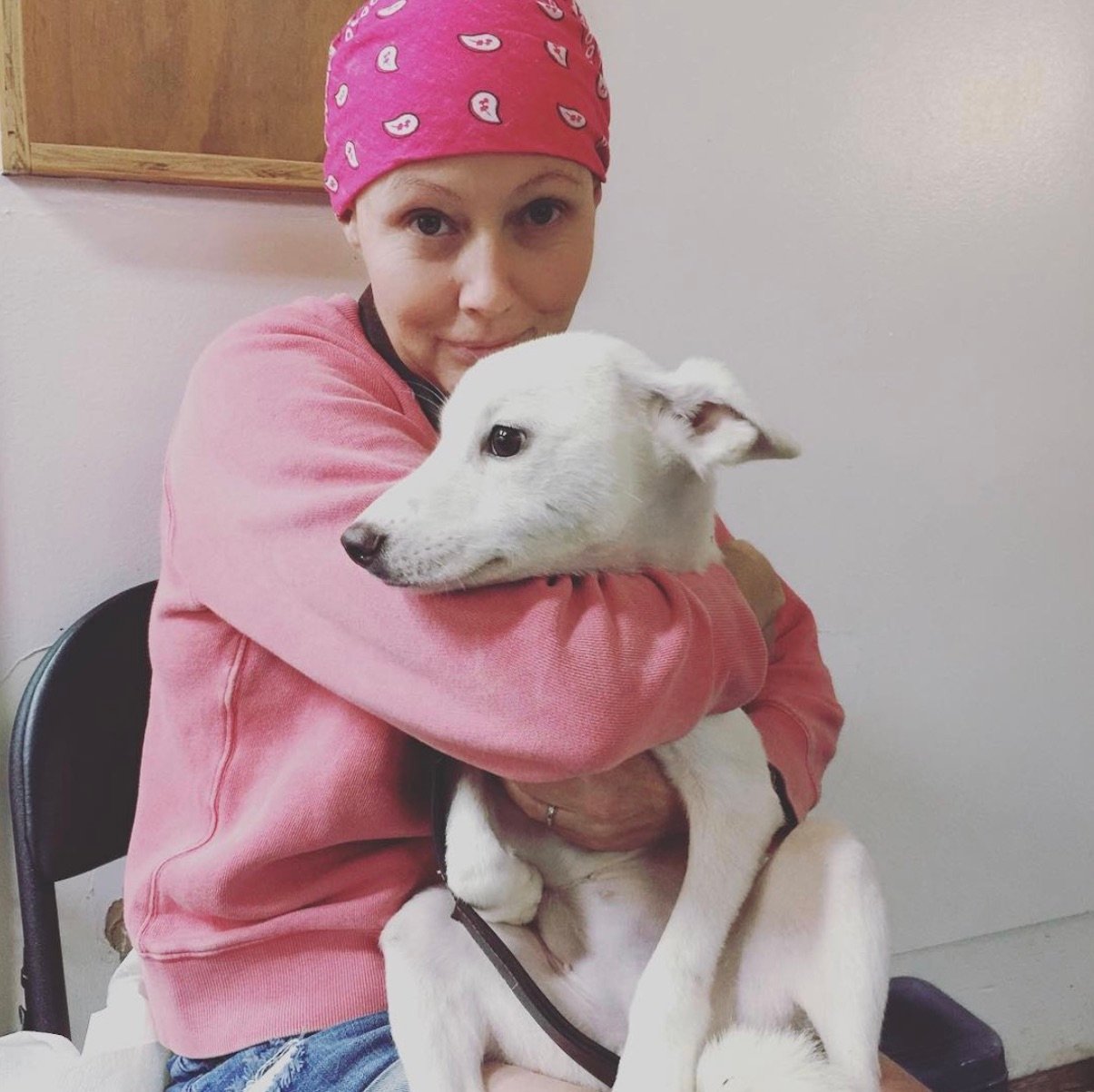Overcoming Regrets During Cancer
- Actress Shannen Doherty, 52, says talking about her cancer journey makes her emotional, but despite how hard and scary it’s been so far, she finds something beautiful in her journey. She revealed in her new podcast, “Let’s Be Clear,” that her surgery scars from a mastectomy continue to be challenging to reconcile with. She intends to detail many aspects of her ongoing breast cancer journey on her podcast in her own words.
- Doherty’s metastatic cancer has spread to her bones and brain since it returned following a brief remission. She says that by sharing her journey publicly, she hopes it brings added awareness to the disease and offers hope to others on their own journeys.
- Doherty is exploring clinical trials for possible treatments to aid her cancer journey. Clinical trials help doctors better understand cancer and discover more effective treatment methods before receiving Food and Drug Administration (FDA) approval.
- Although clinical trials may give cancer patients looking for hopeful treatment relief, they also come with risks (like potential side effects that are not fully understood yet). People interested in participating in clinical trials must first talk with their doctor to see if they would be a good fit.
Actress Shannen Doherty, 52, wants to set the record straight and outline her own journey in her own words through her new podcast “Let’s Be Clear.” Doherty explained how her diagnosis in 2015 made her view herself differently, and when her cancer returned a few years later, it completely changed her outlook on life and the people near and dear.
Doherty said after she was diagnosed with breast cancer, she found coping with her new reality hard and scary, but she admits there was also something beautiful about the experience. Cancer helped her discover an inner strength to persevere through life’s challenges.


She revealed she lives with some regrets related to treatment decisions. As part of her treatment, Doherty underwent hormone therapy, a single mastectomy (the removal of all breast tissue from one breast), chemotherapy, and radiation.
“Getting a breast removed, how that changes the way you look at yourself, and it definitely did. I looked at myself as not whole anymore; I looked at myself as someone who was very damaged, and I still have scars from my reconstruction surgery. There’s not a day that goes by where I don’t feel pain and remorse about that scar and the decision to get the type of reconstruction that I got,” Doherty said without specifying the exact kind of reconstructive surgery she received.

While teasing more about her cancer journey in future episodes, Doherty admitted talking about it is very emotional for her, and rightfully so.
“When you go through stage 4 cancer, there are protocols you have to go through, and I want to get into that on this podcast. What those protocols are, and there are some of them that are phenomenal, and then there are those I couldn’t tolerate at all. You’re chasing protocols and clinical trials, and it can become all-consuming,” Doherty said.
Doherty added she is looking into clinical trials to find a treatment to hopefully add years to her life. Clinical trials help doctors better understand cancer and discover more effective treatment methods. They also allow patients to try a treatment before it’s approved by the U.S. Food and Drug Administration (FDA), which can be life-changing. Despite the benefits of clinical trials, they also come with risks (like potential side effects that are not fully understood yet). People interested in participating in clinical trials must first talk with their doctor to see if they would be a good fit.
Helping Breast Cancer Patients Cope with Treatment
For help finding a clinical trial that’s right for you, try SurvivorNet’s easy-to-use Clinical Trial Finder.
More on Shannen’s Cancer Journey
Shannen Doherty’s initial breast cancer diagnosis arrived in 2015 after she discovered a lump in her breast. For treatment, she had hormone therapy, a single mastectomy (the removal of all breast tissue from one breast), chemotherapy, and radiation.
In 2017, she achieved remission status, but the disease returned two years later in 2019. This time around, her breast cancer was metastatic, or stage 4.

Having metastatic breast cancer means the cancer has spread, or metastasized, beyond the breasts to other parts of the body. It often spreads to the bones, liver, and lungs but can also spread to places like the brain.
While treating advanced breast cancer, the goal of treatment is to keep you as stable as possible, slow the tumor growth, and improve your quality of life.
As cancer treatments improve year over year, so does the number of people battling this form of cancer that spreads to the brain, says Dr. Michael Lim, who is the Chair of the Department of Neurosurgery and a board-certified neurosurgeon specializing in brain tumors at Stanford Medicine.

According to Dr. Kimberly Hoang, a board-certified neurosurgeon at Emory University School of Medicine, a craniotomy procedure like Doherty underwent earlier this year is “a procedure to cut out a tumor” on the brain that may be particularly useful “if the tumor is causing symptoms or if it’s large.”
Since undergoing brain surgery, Doherty has focused on enjoying precious time with loved ones as she continues battling stage 4 cancer.
Doherty’s cancer then spread, or metastasized, to her brain. As a result, she’s undergone both radiation and surgery in the form of a craniotomy to improve her prognosis.
Questions for Your Doctor
If you’re wondering how your cancer treatment may affect your fertility and what options are available to you, consider asking your doctor these questions, according to the National Cancer Institute:
- Could my treatment lead to infertility?
- Are there other recommended cancer treatments that might not cause fertility problems?
- Which fertility preservation options would you advise for me?
- What fertility preservation options are available at this hospital? At a fertility clinic?
- Would you recommend a fertility specialist (such as a reproductive endocrinologist) I could talk with to learn more?
- What are the chances that my fertility will return after treatment?
Learn more about SurvivorNet's rigorous medical review process.

